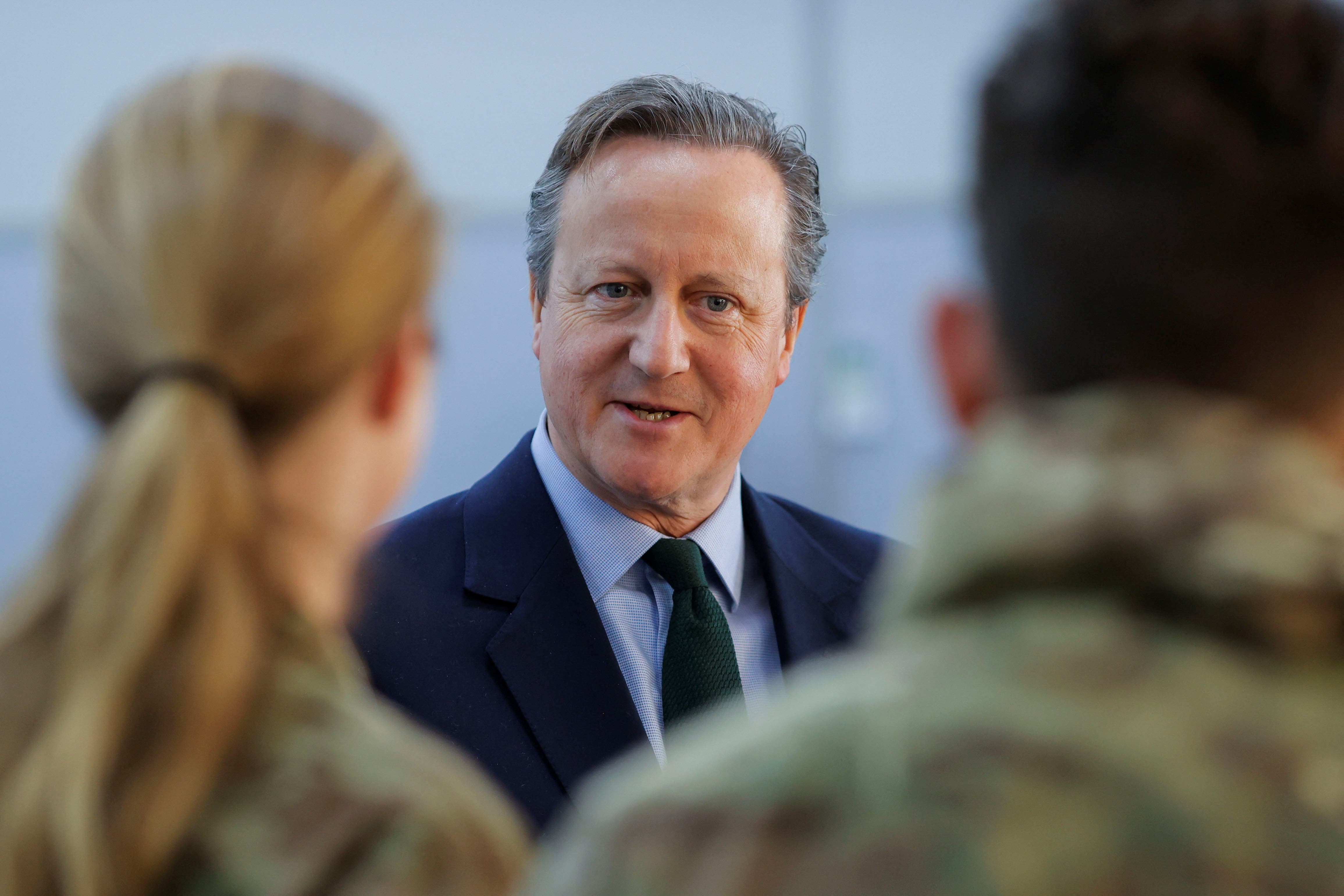Cameron plays down need for presidential election in Ukraine as war continues
Hard-right Republicans in the US have pressed for such an election amid wrangles in Congress over military funding for Ukraine.

Your support helps us to tell the story
From reproductive rights to climate change to Big Tech, The Independent is on the ground when the story is developing. Whether it's investigating the financials of Elon Musk's pro-Trump PAC or producing our latest documentary, 'The A Word', which shines a light on the American women fighting for reproductive rights, we know how important it is to parse out the facts from the messaging.
At such a critical moment in US history, we need reporters on the ground. Your donation allows us to keep sending journalists to speak to both sides of the story.
The Independent is trusted by Americans across the entire political spectrum. And unlike many other quality news outlets, we choose not to lock Americans out of our reporting and analysis with paywalls. We believe quality journalism should be available to everyone, paid for by those who can afford it.
Your support makes all the difference.Lord Cameron has played down any urgent need for Ukrainian president Volodymyr Zelensky to hold an election in the country later this year.
The Foreign Secretary, who appeared alongside Ukrainian foreign minister Dmytro Kuleba at the World Economic Forum in Davos, Switzerland, also insisted that the best way to ensure peace was to continue supporting Ukraine.
The former prime minister downplayed the need for a presidential election this year, something hard-right Republicans in the US have pressed for amid wrangles in Congress over military funding for Ukraine.
Under war-time martial law, elections are prohibited. Under normal conditions, a presidential poll was scheduled to be held in March.
Many in Ukraine back the decision not to hold elections as the war continues.
Mr Kuleba pointed to the practical challenges of holding a vote, with so many Ukrainians living abroad as refugees since Russian president Vladimir Putin’s invasion in February 2022.
But he said if he had to help organise an election, he would.
He told Davos: “Ukraine is a democracy. Ukraine would not have survived, would not survive, if it was not a democracy.
“It’s our democratic nature and the way our country is organised that helped us to repel the aggression. We are a democracy, we will remain a democracy.”
Lord Cameron appeared to give his backing to Mr Kuleba.
“I also have a feeling that the very same people who are complaining about this point, if elections were held – with all the difficulties of getting people to vote in parts of Ukraine that are occupied by Russian soldiers – they’d be the first to complain that these elections aren’t accurate, are not proper, are not fair,” he said.
“As someone who’s led a country, recently I saw as well President Zelensky, his approval rating has slipped from 90% to 80%. I used to dream of 80%.
“One of the things that were striking is the incredible unity of purpose of the Ukrainian people.”
The appearance together of the two foreign ministers came after the UK unveiled a £2.5 billion military aid package for Ukraine, a boost to Mr Zelensky amid concerns western backing for the country was fracturing as the conflict continued.
Lord Cameron said: “I think the job of allies is to back Ukraine in this struggle and to allow them to work out the agenda for when they want to do more work on peace and settlements.
I think we should think about the next year as one in which Ukraine, with this support, can actually grow stronger, grow stronger economically, diplomatically, militarily. That should be the aim and that will make peace more likely
“I sometimes say to other foreign ministers, if you say ‘let’s support Ukraine’, and also ‘let’s promote a new peace process’, you won’t get either of those things.
“If you support Ukraine, you may well get the second thing, but that’s what we need to do now.
“I think we should think about the next year as one in which Ukraine, with this support, can actually grow stronger, grow stronger economically, diplomatically, militarily. That should be the aim and that will make peace more likely.”